Legal Online Gambling Age in Canada 2025
A key component of any nation’s legislative and regulatory framework for the gambling sector is the supported gambling age. varied jurisdictions in Canada have varied rules for deciding what age is appropriate for participating in gambling activities. The objective of this page is to give a thorough and unbiased review of the legally supported gambling age in Québec, Manitoba and other parts of Canada.
We will investigate the age limitations placed on several types of gambling, including casinos, lotteries, internet platforms, and sports betting, by looking at federal and provincial rules. Citizens and industry stakeholders in Canada must understand the legislative framework governing gambling age requirements.
Related article
Biggest Online Casino Wins of All Time
Gambling Horoscope 2025: Your Lucky Days
Online Casino Guide for Beginners
What’s the legal gambling age in Canada?
Where you play makes a difference under Canadian legislation. Generally, the minimum age to go to casino in Canada is 19 in most provinces. For instance, Ontario, Brampton, Mississauga, London, Ottawa and Toronto all have Canadian gambling at the age of 19. However, in Montreal and Quebec, the least supported gambling age is 18. Be sure to keep up with the local laws and regulations before attempting to play at any casino.
Minimum Age
Most Canadian jurisdictions require that you’re at least 19 years old to qualify for entry into local casinos, be it Online or Physical. But for Quebec, Alberta and Manitoba, you must be at least 18 years old. Most casinos generally would demand a proof of identity document before you can be allowed to start gambling. We’ve outlined a detailed list of legal casino age in Canada for your review below:
Find your local casino
The minimum legal gambling age in Montreal, and other major cities in Quebec is 18. This is a welcome contrast to other provinces that insist on meeting the 19 year old mark before obtaining access to gambling in Canada. We’ve outlined the preferred min age per provincial casino below:
| Province | Nova Scotia | Saskatchewan | British Columbia | Nunavut | Northwest Territories | New Brunswick | Yukon | Québec | Ontario | Newfoundland and Labrador | Prince Edward Island | Manitoba | Alberta |
|---|---|---|---|---|---|---|---|---|---|---|---|---|---|
| Major Cities | Halifax, Sydney, Truro | Saskatoon, Regina, Prince Albert | Vancouver, Surrey, Burnaby, Richmond | Iqaluit | Yellowknife, Inuvik, Hay River | Moncton, Saint John, Fredericton | Whitehorse | Montreal, Laval, Gatineau, London | Toronto, Ottawa, Mississauga, Brampton, Hamilton, London | St. John’s, Mount Pearl, Corner Brook | Prince Edward Island Charlottetown, Summerside, Stratford | Winnipeg, Brandon, Steinbach | Calgary, Edmonton, Red Deer |
| Online Gambling Canada Age | 19 | 19 | 19 | 19 | 19 | 18 | 19 | 18 | 19 | 19 | 19 | 19 | 18 |
What are the different types of gambling in Canada?
The typical casino has kicked the doors open to the hottest gambling action in the world. Helping you get your head around the choice you’re likely to face, the following is a low-down on the various types of gambling you’ll encounter on Canadian shores.

Casino
Ever since online gambling was made legal in the country, casinos have practically exploded throughout all provinces in the Federation. Players who are legal residents of a province and are at least up to the legally allowed age mandated in the province now have access to a variety of digital games from different providers. These casino games span categories including slots, are games and live dealer types. Players, however, must ensure that their preferred casino is regulated by the provincial regulatory bodies before gambling to ensure conformity with the law.

Online Poker Games
On specialized platforms that are accessible via desktop and mobile devices, online poker is played in Canada. Players have access to a wide range of international competitors. Texas Hold’em, Omaha and Seven-Card Stud are popular game types with variations, including Pot-Limit and No-Limit. Options for both play money and real money are available. Regulatory organizations guarantee fair play and player safety. Advanced encryption is a priority for trusted platforms when protecting player data. Cash games and tournaments with predetermined buy-ins are available. A big part is played by strategy and skill. Promotions and bonuses are frequently offered, including welcome bonuses and loyalty schemes. Online poker is accessible and convenient around-the-clock.

Lottery
Sports betting is legal in Canada, with regulations varying by province. Regulatory bodies like AGCO and BCLC oversee operations. Popular sports for betting include hockey, football, basketball, baseball, and soccer. Online platforms offer convenience, while land-based casinos and sportsbooks provide traditional options. Bettors have access to diverse markets such as moneyline, point spread, totals, futures, parlays, and prop bets. Decimal odds are commonly used. Responsible gambling practices are emphasized, with self-exclusion programs and deposit limits. Sports betting winnings are generally not taxed. The Canadian market has been growing due to increased interest in sports and online availability.

Slot Games
Slots are arguably one of the most popular gaming genres in online casinos. Canadians have the chance to enjoy varying themes and genres of slots from different providers at local online casinos. The type of games available span classic slots, video slots, 3D slots as well as progressive slots. Casinos often award sizable bonuses to newbies and regular players alike to improve their earnings on these games.
What about online gambling?
Online gambling follows a similar track to land-based casinos in Canada, with all provinces offering legalized online gambling in one form or another, as long as the site has government licensing and approval. What this means is that you don’t need to rely on old-fashioned lottery tickets to get a taste of prize-loaded gambling action.
It might be a little bit late to the dance – as Europe has been at the forefront of gambling for years – but Canada has a growing online casino scene that is seemingly getting bigger by the day.
Do Online Casinos Check the Minimum Casino Age Limit?
Casinos regulated by provincial governments typically never compromise to payout earnings to players below the age of 18/19, as the case may be. Such casinos often generally conduct KYC checks and weed out minors from participating on their platforms during registration. KYC checks are often outsourced to specialist third-party companies, improving the efficiency of the whole flow. Minors, however, often assume the identities of older relations and friends, making it more difficult to ascertain their true age.
It’s easier to enforce identity verification in land-based casinos compared with online casinos. However, trying to replicate an equivalent level of scrutiny in online casinos is considered unduly invasive and heavily frowned upon by operators themselves. All the same, a splendid idea to bank on these available systems to improve transparency. The legal gambling age in Ontario is 18.
Digital Identity Tracker
The new casino Digital Identity Tracker is an effective age verification tool in modern casinos. The digital id tracker is essentially a digital record of every legal Canadian resident. All the casino needs to verify details submitted by a prospective player is to contrast the player’s ID submission with their Global Gateway record. It’s easy to verify the player’s age with the check this way. Credit cards are authenticated so that identity is automatically verified when a credit card is used.
Age verification is mandatory
Casino operators are well aware of the fact that they can be legally prosecuted should they act negligently toward conducting age verification of players. However, they are equally also aware that should they adhere firmly to the legislation and refuse players access to their platforms until age verification is completed, these same players may be granted immediate access by less scrupulous competitors.
This regulation is often circumvented, but there are problems when the “young” player wants to cash out his winnings. Often it turns out that the gamer is not yet 18 years old and is therefore not allowed to play or win, but he is also not allowed to make a deposit.
Conclusion
The growing gaming business in Canada has led to continued discussion about the country’s legal age. All age groups are included in the growth trend, which shows no indications of slowing down. The revenues are anticipated to increase more now that online casinos are the main attraction.
Young people between the ages of 18 and 19 have shown a special interest in the accessibility of online casino games via cell phones. This element of convenience has boosted their appeal and participation in the gambling industry. Policymakers and regulators will have a difficult time juggling the need for responsible gambling with the potential advantages of a booming industry as the environment continues to change.

